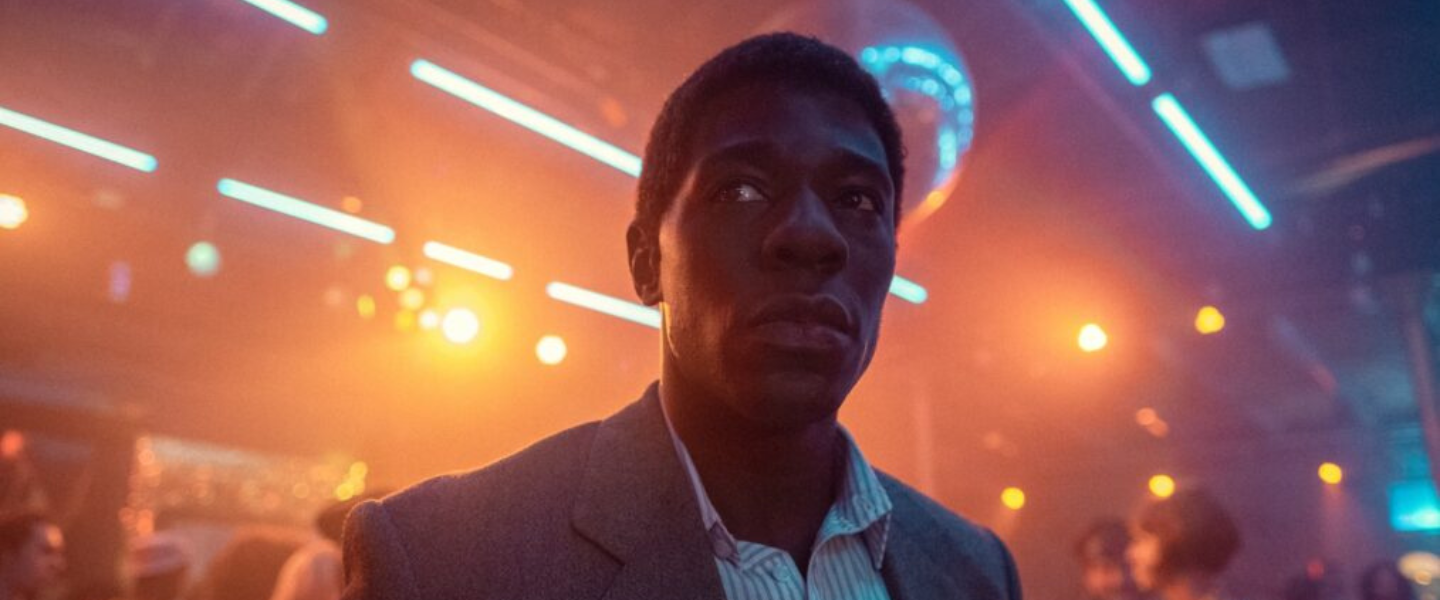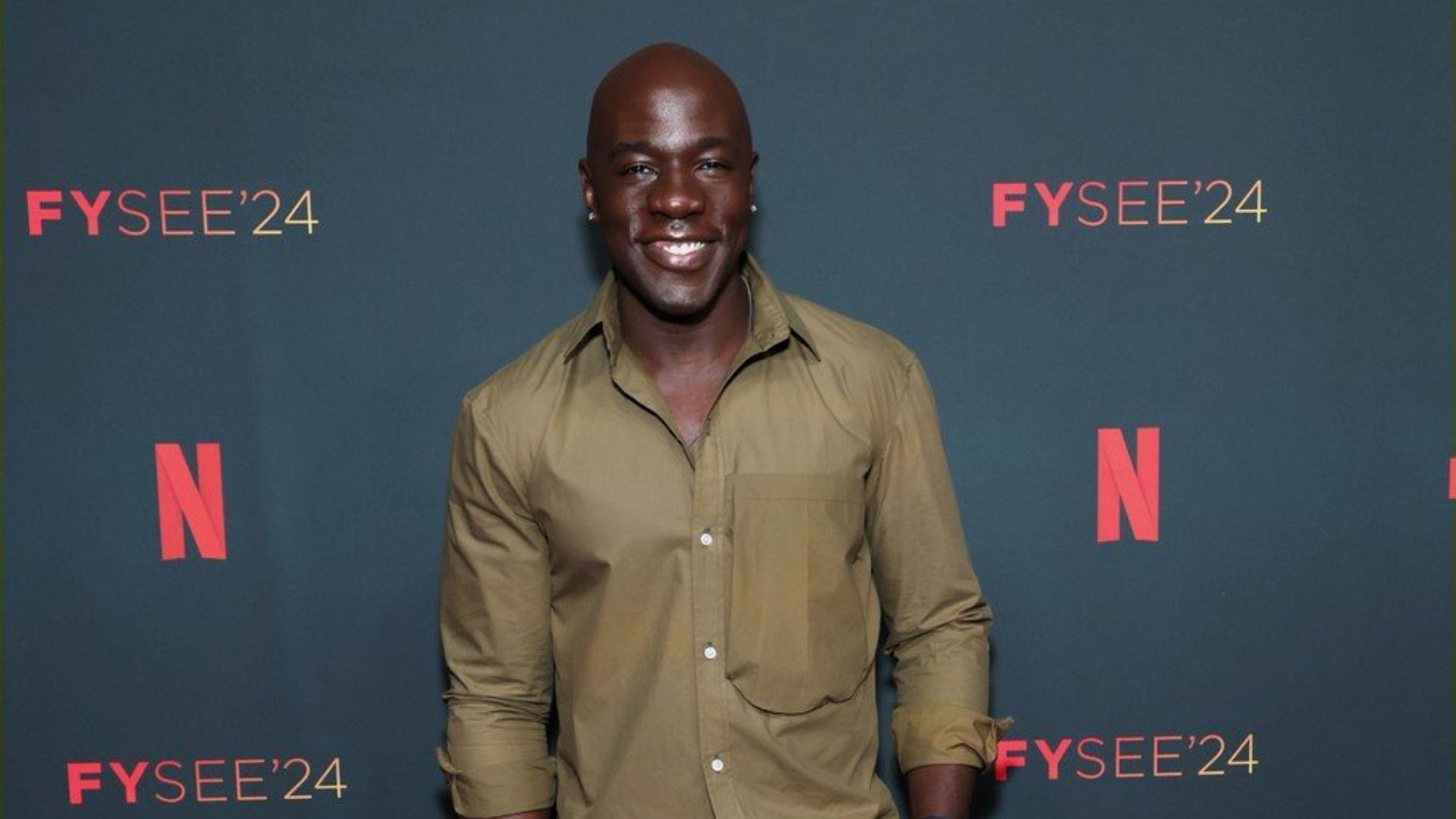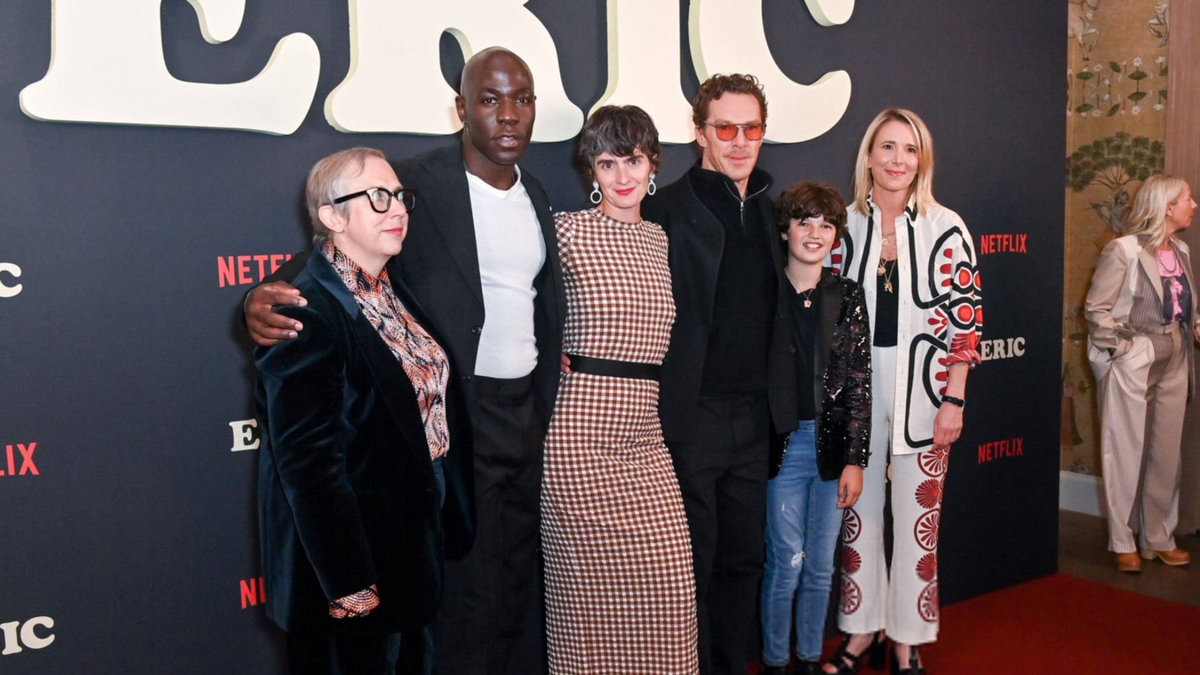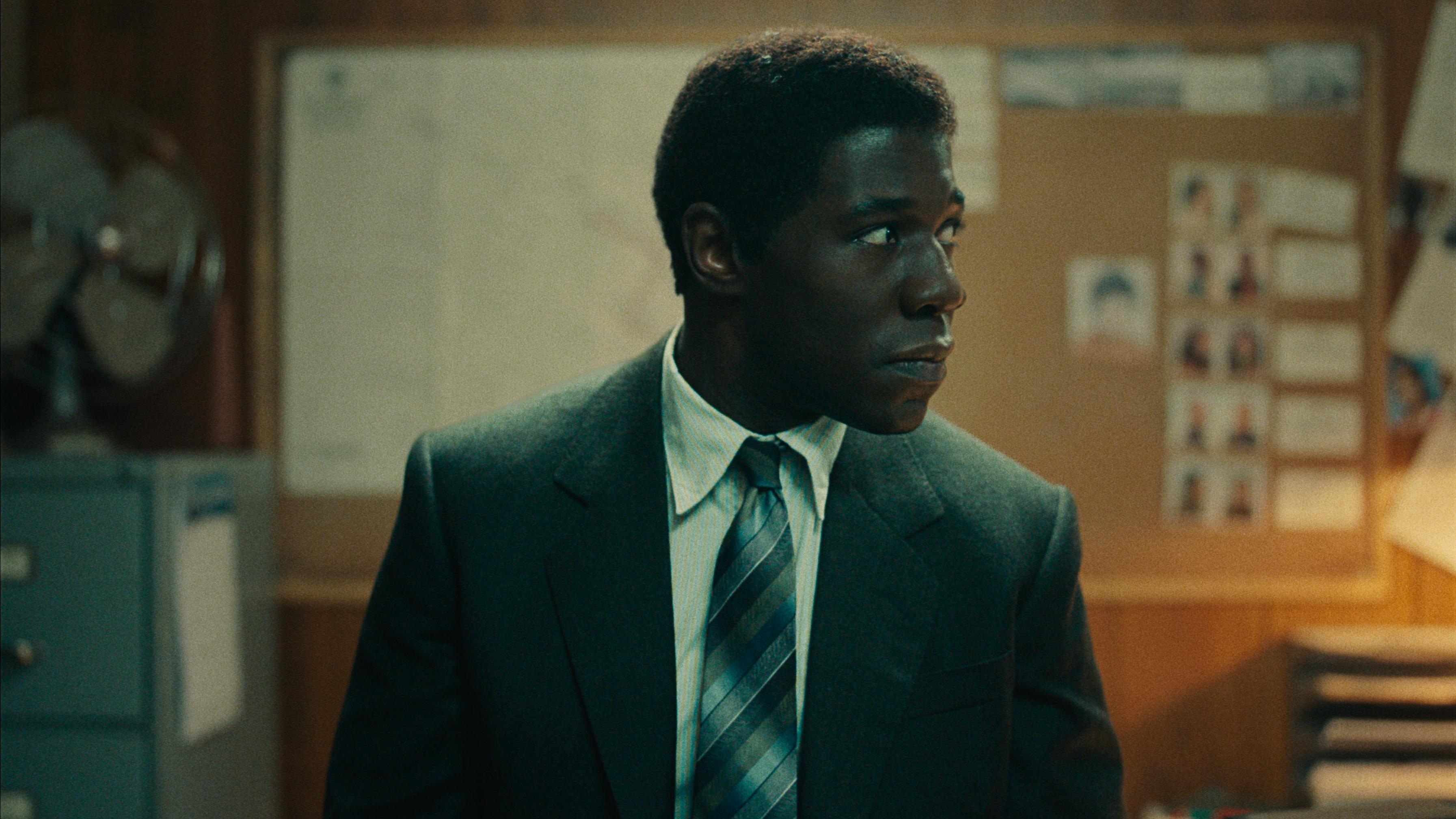Since his graduation from Belmont in 2006, alumnus McKinley Belcher III has been ingrained in the performance industry. The off-Broadway star and actor discovered a love for the craft as a Belmont student, and after graduating with a B.A. in communication studies and a minor in political science, he moved to California to pursue his MFA. Following a decade of head-turning performances , Belcher will co-star alongside Benedict Cumberbatch and Gabby Hoffman in the Netflix original series “Eric,” debuting on May 30.
Slated for a six-episode run, “Eric” depicts the fictional story of Vincent, a father and prominent 1980s puppeteer played by Cumberbatch, whose son goes missing one morning on the way to school. As he grows increasingly unstable and struggles with grief, Vincent believes that featuring a puppet named Eric on his TV show will bring his son back. All the while, Detective Michael Ledroit, played by Belcher, attempts to shine a light on internal corruption within the New York Police Department while he searches for the missing boy.
Themes of grief, addiction and mental health are prominently featured in the psychological thriller created by Abi Morgan, and according to Belcher, “Eric” has stretched Belcher as an actor more than any project beforehand.
Below is an exclusive Q&A Belmont conducted with Belcher leading up to the release of “Eric”.
What has the last decade or so in this industry looked like for you?
“There have been some ups and downs along the way, but the thing that strikes me most about my journey is that it's been a steady climb. A meteoric rise to fame can sometimes be really enticing and I've felt envious of that at times. But I think my steady, step-by-step artistic journey really means that I've earned where I am with hard work, dedication and consistency.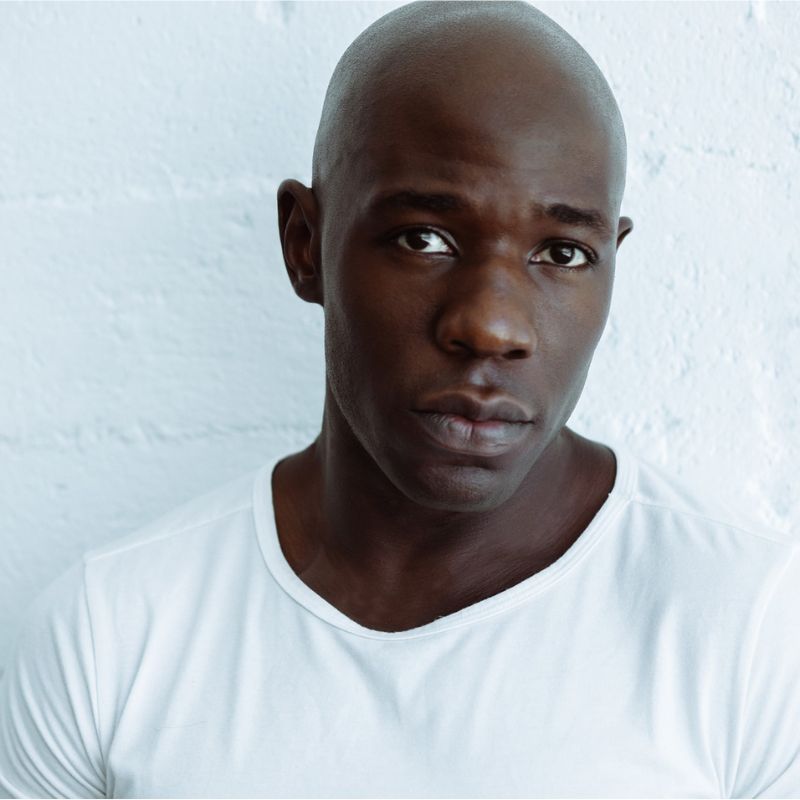
There are just some things that are harder to learn if they come quickly. I graduated from the University of Southern California with my MFA in 2010, so it's been 14 years of building. Moving from Los Angeles to New York City in 2013, where I did my first off-Broadway play “Romeo & Juliet” at Classic Stage Company, was a really important decision. Being on the east coast meant I could do everything: stage, film and TV. I was also just happier there as a human — it felt like I found my tribe. I was starting to feel a little lost before I moved, and everything changed with me being in NYC. I found a team that really works for me. I learned how I wanted to balance work in all the mediums. And I really started to make a foray into a lot of TV work on HBO, PBS and Netflix among many others. Making my Broadway debut in “A Soldier's Play” at Roundabout Theatre Company in 2019-2020 was a big one. It's something I always dreamed about, and to do it with such an iconic play written by a Black man meant a lot to me.
And now, being one of the leads of this beautiful show feels like a new benchmark. It's a funny thing though. Every time I summit a professional mountain, there are a few more peaks to climb before me. I think I used to be surprised by this, but now I've just embraced it. I'm curious how this show will change my journey and hopefully give me access to more opportunities to lead. This work is process oriented — there is no arrival, there is only journey, learning, investigating, sharing and expanding. I find a lot of joy in that.
There will be awards or jobs that feel like growth or momentary success, but ultimately this is a discipline that I'm developing a relationship with, so it's not always linear. It's organic and messy, and beautiful in its imperfection. Embracing that has made me a better artist and man. It requires a degree of faith.”
How did your creative process and preparation for “Eric” differ from previous projects?
“I'm so proud that Eric is truly an original piece of work. That starts with Abi Morgan, our writer and showrunner. My first thought when I read the script was, "this is so weird," and I mean that as an incredible compliment. In a world where so many things are being remixed, recycled and regurgitated, to be in a project that is unique, off-center and dares to do something different is incredibly exciting.
When I finally got all six episodes, I remember feeling a little scared — and that's a good sign. It means I'm stepping into unfamiliar territory and that I'm stretching myself. Artistically, the whole point is to keep growing and challenging yourself, so that scary feeling is always something I lean into and march towards. It means it's exactly the kind of project I should be doing.”
What has it been like to work with a cast of this caliber?
“Eric has definitely been the show that's challenged me the most and provided me space to explore creatively. The cast is chock-full of amazing talents and people who inspire me. About seven years ago, I did a boxing play Off-Broadway at Lincoln Center called “The Royale.” Clarke Peters was also in that play, and I was thrilled when I learned that he'd joined our cast. He's full of so much wisdom and gravitas, and it's fun to build on the trust we developed years ago. Both Clarke and John Doman are veterans from David Simon's “The Wire.” Having worked with David twice on “Show Me a Hero” and “We Own this City,” I think he has incredible taste in actors.
Benedict is a world class talent, and it would be easy for him to show up with a lot of ego. I found it refreshing how much he loves the work and how vulnerable he allows himself to be. My character spends a lot of time in a place of acute observation, and my impression of Benedict is an actor who is eager to roll up his sleeves and do the work. All his energy is funneled into the work and telling the story, while also being incredibly kind. We couldn't ask for a better leading man.
Gaby was one of my favorite people to talk to. We had some incredible conversations that I cherish, and of course, she's a fantastic actress. I also lucked out with two incredible actors playing my love interests, Wade Allain-Marcus and Mark Gillis. It's incredible when actors show up with an open heart and a generous spirit — it literally makes everyone better.”
How did Belmont help to influence your love for acting, even though you didn’t plan to be an actor or major in acting?
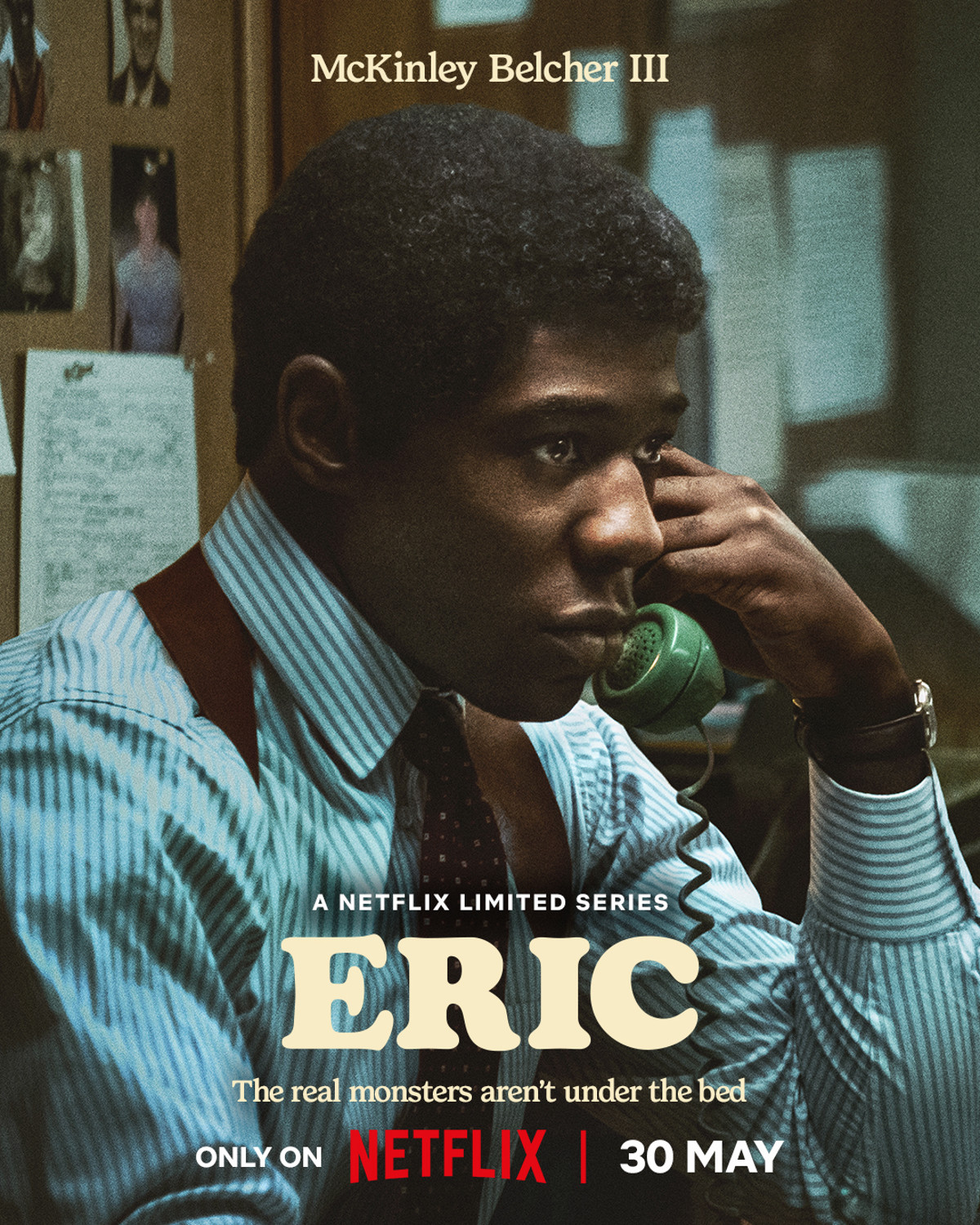 “Being on the Speech and Debate team was probably the single most impactful choice I made while at Belmont. In addition to helping me get over a fear of public speaking, it encouraged me to consistently think about perspective and to develop a point a view about the world around me. It nudged me toward more deeply interrogating who I am in this world. Apathy is dangerous, and I started thinking about so many things that I hadn't been aware of, just by participating and building pieces for each forensics event.
“Being on the Speech and Debate team was probably the single most impactful choice I made while at Belmont. In addition to helping me get over a fear of public speaking, it encouraged me to consistently think about perspective and to develop a point a view about the world around me. It nudged me toward more deeply interrogating who I am in this world. Apathy is dangerous, and I started thinking about so many things that I hadn't been aware of, just by participating and building pieces for each forensics event.
Doing things like impromptu and extemporaneous speaking gave me lots of tools that I use regularly now as an actor, advocate and artist. Events like poetry, prose and dramatic interpretation nurtured some of the raw talent I had for writing and developed an artistic relationship to the written word. Our coach Mary Vaughn, who was also my professor, trusted me with a piece that her husband, Cliff Vaughn, had written. I remember being in awe that this beautiful thing came out of this person who I was in close proximity to. It inspired me to keep writing.
I also worked in the media library. At that time, it was on the top floor of the Lila D. Bunch Library. Working there expanded the kinds of cinema I was exposed to. I remember the first time I saw the film version of “The Dutchman,” which then made me read the play by Amiri Baraka, then read a lot of his other work. There are lots of examples of these rabbit holes of film, novels, poetry and music. The library enriched my appetite and was a part of developing my artistic sensibilities. I ended up using a monologue from “The Dutchman” when I auditioned for grad school.”
What is a piece of advice you would give to either an inspiring actor or someone questioning their future upon the discovery of a new passion?
“I think college, and much of life, should be about exploration and giving yourself the joy of being exposed to, and trying, new things. Some people show up knowing exactly what they want to do, and their exploration will add nuance to what they already know in terms of the trajectory they will take. But most people, even if they think they have an inclination, are going to discover their purpose anew during this time.
Within reason, I think you should explore until you find something that makes you feel alive. It may sound idealistic, but I really believe if you're standing in the center of your purpose, you can change the world. I think I'd also say that human beings have this tendency to want to blend in and adjust to their surroundings – to be one of the many. Some of that is natural, but it becomes dangerous when it means you start sanding off the unique edges of who you are. Or that you don't feel comfortable in your skin or being all of yourself.
Loving and embracing your whole self unlocks so much potential. It's hard to be great at anything if you're hiding. Uniqueness and individuality are beautiful. There is no one exactly like you, so don't erase the ways in which you are beautifully drawn. Bring your full self to whatever it is you decide to do. There are some things you'll never be able to do if you're running from yourself, feigning self, or worse, deluding yourself into thinking the mask you've adopted is your real face. It sounds crazy, but there are so many people walking around like that, and they're operating at half capacity.
Over time, I realized I didn't want to be one of those people, and I know I'm better for it. My work has helped me understand this in a profound way, and I'm grateful for that. The work I do impacts people in the world, but it's also reflexive, and if I allow it, I am continually changed and challenged by it. And that's a gift that will sustain me for a lifetime. The work also just makes me feel alive, and that was true when I stepped on stage for the very first time at Belmont 20 years ago.”
Watch trailer
Photos courtesy of Netflix and McKinley Belcher III

